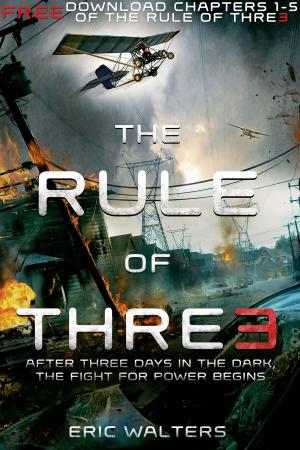Gaming the Vote
Why Elections Aren't Fair (and What We Can Do About It)
Nonfiction, Social & Cultural Studies, Political Science, Government, Elections| Author: | William Poundstone | ISBN: | 9781429957649 |
| Publisher: | Farrar, Straus and Giroux | Publication: | February 17, 2009 |
| Imprint: | Hill and Wang | Language: | English |
| Author: | William Poundstone |
| ISBN: | 9781429957649 |
| Publisher: | Farrar, Straus and Giroux |
| Publication: | February 17, 2009 |
| Imprint: | Hill and Wang |
| Language: | English |
Our Electoral System is Fundamentally Flawed, But There's a Simple and Fair Solution
At least five U.S. presidential elections have been won by the second most popular candidate. The reason was a "spoiler"—a minor candidate who takes enough votes away from the most popular candidate to tip the election to someone else. The spoiler effect is more than a glitch. It is a consequence of one of the most surprising intellectual discoveries of the twentieth century: the "impossibility theorem" of Nobel laureate economist Kenneth Arrow. The impossibility theorem asserts that voting is fundamentally unfair—a finding that has not been lost on today's political consultants. Armed with polls, focus groups, and smear campaigns, political strategists are exploiting the mathematical faults of the simple majority vote. In recent election cycles, this has led to such unlikely tactics as Republicans funding ballot drives for Green spoilers and Democrats paying for right-wing candidates' radio ads. Gaming the Vote shows that there is a solution to the spoiler problem that will satisfy both right and left. A system
called range voting, already widely used on the Internet, is the fairest voting method of all, according to computer studies. Despite these findings, range voting remains controversial, and Gaming the Vote assesses the obstacles confronting any attempt to change the American electoral system. The latest of several books by William Poundstone on the theme of how important scientific ideas have affected the real world, Gaming the Vote is a wry exposé of how the political system really works, and a call to action.
Our Electoral System is Fundamentally Flawed, But There's a Simple and Fair Solution
At least five U.S. presidential elections have been won by the second most popular candidate. The reason was a "spoiler"—a minor candidate who takes enough votes away from the most popular candidate to tip the election to someone else. The spoiler effect is more than a glitch. It is a consequence of one of the most surprising intellectual discoveries of the twentieth century: the "impossibility theorem" of Nobel laureate economist Kenneth Arrow. The impossibility theorem asserts that voting is fundamentally unfair—a finding that has not been lost on today's political consultants. Armed with polls, focus groups, and smear campaigns, political strategists are exploiting the mathematical faults of the simple majority vote. In recent election cycles, this has led to such unlikely tactics as Republicans funding ballot drives for Green spoilers and Democrats paying for right-wing candidates' radio ads. Gaming the Vote shows that there is a solution to the spoiler problem that will satisfy both right and left. A system
called range voting, already widely used on the Internet, is the fairest voting method of all, according to computer studies. Despite these findings, range voting remains controversial, and Gaming the Vote assesses the obstacles confronting any attempt to change the American electoral system. The latest of several books by William Poundstone on the theme of how important scientific ideas have affected the real world, Gaming the Vote is a wry exposé of how the political system really works, and a call to action.















